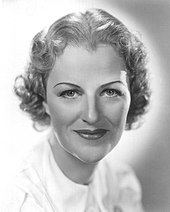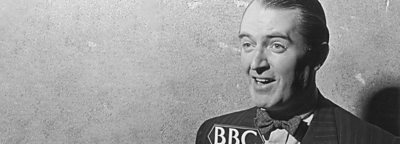Dame Esmerelda Cicely Courtneidge, DBE (1 April 1893 - 26 April 1980) was an Australian-born British actress, comedian and singer. The daughter of the producer and playwright, Robert Courtneidge, she was appearing in his productions in the West End by the age of 16.
Following the outbreak of the First World War, her father had a series of failures and temporarily withdrew from production. No other producers offered the young Cicely leading roles in musical comedies and so she turned instead to the music hall, learning her craft as a comedian. In 1916 she married the actor and dancer Jack Hulbert, with whom she also formed a professional partnership that lasted until his death 62 years later. They acted together on stage and screen, initially in a series of revues, with Hulbert frequently producing as well as performing.
During the Second World War, she entertained the armed forces and raised funds for the troops. After the war, she concentrated on non-musical theatre, appearing in the West End, and on tour, in a range of plays, both serious and comic and, in the late 1960s, also appeared on TV, most notably in the role of Reg Varney's mother in the first series of On The Busses, before Doris Hare took over the part.
While appearing in her last West End run in 1971, she celebrated 70 years on the stage. The following year she was appointed Dame of the British Empire. One of her last stage appearances was in a royal gala performance at the Chichester Festival Theatre in June 1977, celebrating the Queen's Silver Jubilee with an all-star cast including Ingrid Bergman, Wendy Hiller, Flora Robson and Diana Rigg.
Jack Hulbert died in 1978 and Cicely two years later, shortly after her 87th birthday, at a nursing home in Putney. She was cremated at the Golders Green Crematorium.
Here she performs the revue sketch Double Damask:
www.youtube.com/watch?v=xZ1izbkWWoI
For the uninitiated (like myself), damask is a rich, heavy silk or linen fabric with a pattern woven into it, used for table linen and upholstery; Double damask is a type of woven fabric with a pattern visible on both sides. It is made from pure flax yarns and has a denser weave than single damask.








/cdn.vox-cdn.com/uploads/chorus_image/image/66657910/909055392.jpg.0.jpg)